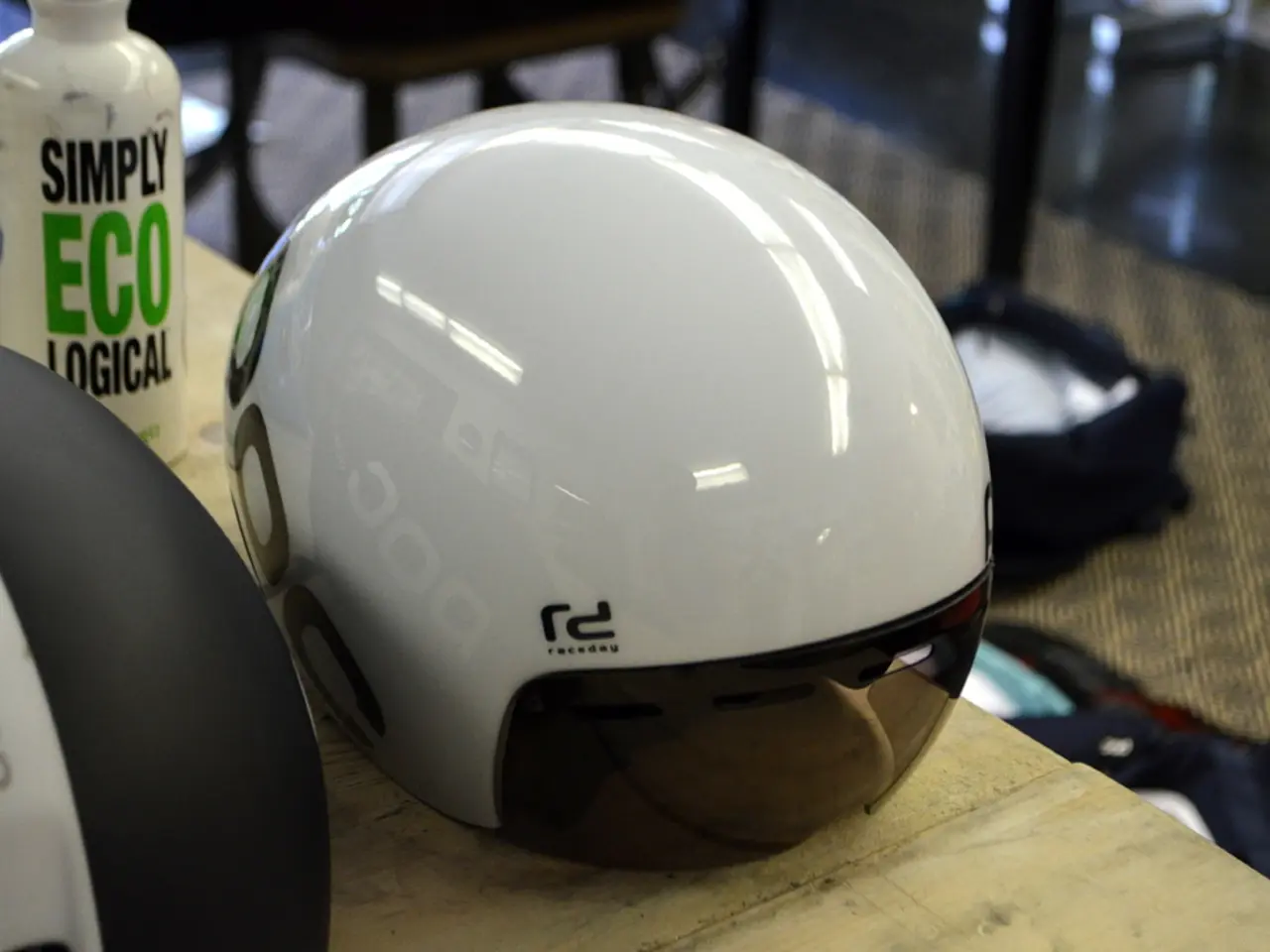Symptoms, remedies, and healing process for a brain injury known as concussion
A concussion, an injury caused by a blow to the head or body that shakes the brain and disrupts neurons, is a common occurrence, particularly in sports. Post-concussion syndrome, where people experience persistent concussion symptoms for weeks or months after the injury, is the most common complication.
In the immediate aftermath of a head injury, it's crucial to take immediate action. Stop physical activity immediately to avoid worsening the injury. Have someone monitor you for 24 hours for concerning symptoms like worsening headache, dizziness, confusion, or loss of consciousness. Seek medical attention even if symptoms seem mild for proper diagnosis and to prevent complications such as second-impact syndrome, a rare but serious complication that may cause brain herniation and death.
Once diagnosed, the recovery process involves rest and a gradual return to activities. Begin with short rest (1–3 days) avoiding strenuous exertion but remain lightly active as tolerated since total inactivity can slow recovery. Start with light aerobic exercise (e.g., 10-15 minutes walking or stationary cycling) once symptoms allow, monitoring closely for any return of symptoms during or after activity. Progress gradually through stages of increasing physical activity, from light aerobic to moderate aerobic with light resistance training, then high-intensity non-contact drills, and eventually limited contact activities in sports if applicable.
Return to full activity or contact sports only after all symptoms have resolved and with medical clearance, particularly before returning to play. Maintain good sleep hygiene and avoid activities that worsen symptoms during this phase.
Long-term prevention and management strategies are also essential. Early intervention is critical for managing persistent symptoms (post-concussion syndrome), including vestibular rehab for balance issues and cognitive rehabilitation for memory and concentration problems. Engage in neck and spine physiotherapy if experiencing neck pain or tension. Gradually resume physical activity with careful symptom monitoring to avoid setbacks. Psychological support (CBT, stress management) is recommended for emotional symptoms like anxiety and depression.
Adopt a healthy lifestyle including a balanced diet rich in omega-3 fatty acids and antioxidants, staying well hydrated, and maintaining regular physical activity to support brain health. Use memory aids and cognitive exercises if cognitive symptoms persist.
After a week, people with a recent concussion should return gradually to their usual activities, being careful to avoid any that make their symptoms worse. After experiencing a concussion, a person should rest for 2 days and then gradually return to normal activities. A doctor will ask questions about the accident, symptoms, and severity of symptoms, perform a physical examination, and run cognitive tests.
These steps together ensure a safe and effective concussion recovery process, minimizing long-term effects and reducing the risk of re-injury. It's important to remember that while recovery usually lasts about 1-2 weeks, the severity of the concussion symptoms in the first few days can be a good indicator of how well the person may recover. Always seek immediate medical help if experiencing concerning symptoms such as one pupil appearing larger than the other, drowsiness or inability to wake up, a headache that gets worse and does not go away, slurred speech, weakness, numbness, decreased coordination, repeated vomiting or nausea, convulsions or seizures, unusual behaviour, confusion, restlessness, agitation, loss of consciousness, or any other unusual symptoms.
- For a proper diagnosis and to prevent complications like second-impact syndrome, seek medical attention even if symptoms seem mild after an accident or fall.
- Science-based therapies, such as vestibular rehab for balance issues and cognitive rehabilitation for memory and concentration problems, can be helpful in managing post-concussion syndrome.
- A balanced diet rich in omega-3 fatty acids and antioxidants, maintaining good sleep hygiene, and regular physical activity can support brain health during the recovery process.
- Engaging in mental health therapies like CBT and stress management can help manage emotional symptoms like anxiety and depression that may arise following a concussion.




